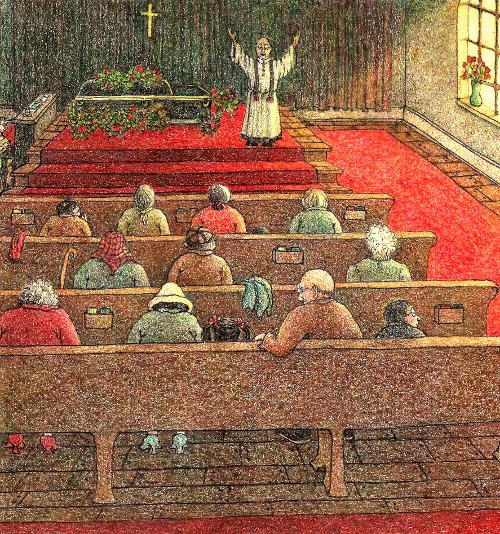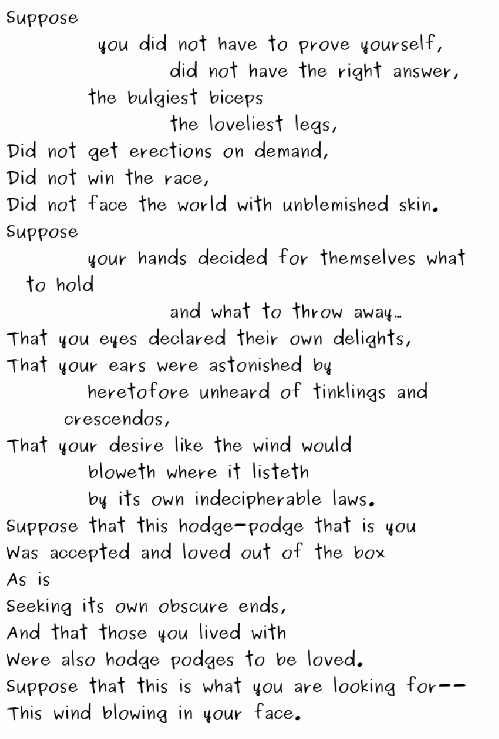| Back OpEd News | |||||||
|
Original Content at https://www.opednews.com/articles/I-m-Going-To-Talk-About-Je-by-James-Hunter-Beauty_Bible_Economic_Evangelical-190215-901.html (Note: You can view every article as one long page if you sign up as an Advocate Member, or higher). |
|||||||
February 14, 2019
I'm Going To Talk About Jesus Now
By James Hunter
This article explores the nature of the reality that Jesus called "The Kingdom of Heaven," and its relationship to modern-day politics.
::::::::
If I am going to talk about Jesus, I suppose there are a couple of things I ought to get out of the way before I begin. For starters, I am not a Christian -- at least as the concept is currently defined by evangelicals. By not being a Christian, I mean three things: First, I do not believe that we escape eternal torment by believing something about the identity of Jesus. In fact, I believe that the idea of a loving god casting any of His (Her) children into a eternal place of punishment, for any reason, is one of the most illogical and harmful ideas ever perpetrated on humanity. Second, I buy into the modern conviction that, as far as method is concerned, what we can know is limited to reason and experience. I would just add that we must be open to the full range of experience -- not just sense impression. We experience things like love, beauty and the sacred. Also, I think we moderns need to discard the straight-jacket of materialism. Enough about the modern world-view. Third, the Bible is a collection of historical manuscripts. Its a very fascinating collection, but like any other collection of historical manuscripts, it is subject to error and to the prejudices of time and place.
So reader be warned: you may encounter thinking on this page.
Back to Jesus. I think he said some important things -- maybe some of the most important things a human being ever said.
The central teaching of Jesus was not about how the various species came into existence. It was not an update on what happened during Noah's flood. It was not even about justice. It was about love. Agape, to be exact. Unconditional love. Is such a thing as unconditional love even possible for human beings?
Well, no. Not really.
Agape is the kind of love that Jesus believed God has for human beings. But it is also the ideal that must guide us ordinary human beings if we are to enter what Jesus called "the Kingdom of Heaven." Perhaps it would be easier for us moderns to understand what is meant by "Kingdom of Heaven" if we called it the Reign of Love. Love of self and others. Love despite everything. Agape means affirming the value of all people. It means trying to understand people with whom we disagree or whose behavior we disapprove of. And above all it means willing the well-being of all people.
Our social arrangements will always be flawed at best. But the Reign of Love isn't about waiting for things to be right. It is here, now. Within us or among us, I think is how Jesus expressed it. (He used a preposition that could be translated by either within or among.) The Reign of Love doesn't mean accepting behaviors even if they are hurtful to others. Concern for the well-being of self and others means that we must challenge harmful behaviors -- ours or other's. But it is about accepting and loving one's self and others just as we are.
The Reign of Love is the only a utopia there is.
Utopia
The Reign of Love means loving your neighbor as yourself. But who is this neighbor. Good question. We won't be the first to ask.
Willing the well-being of the other means politics. If our neighbor is being exploited, made homeless, scapegoated, imprisoned and/or crushed by the social and economic arrangements of society, then willing his or her well-being means trying to change those arrangements. Love without politics is sentimentality.The Main Thing
One day while I was standing in front of the generic brand products in our supermarket, deliberating whether to buy their toothpaste or to continue to rely on Colgate, I saw the Lord Himself. He was over at the delicatessen ordering potato salad.
I ran right up to him and asked the question that was burning in my heart. "Good Master," I said, "What must I do to inherit eternal life?"
"Well, loving God and loving your neighbor are the main things," he answered.
"Yes," I persisted, "so I have tried to do. But who is my neighbor?"
"Your neighbor," he said, with a piercing look, "Is Menandez Felicidad from Nicaragua."
"Yes," I said, "I can handle that."
"And your neighbor," he added, "Is Mbotubu Lombombo."
"No problem," I said.
"And Ivan Schnotsaliski," he went on.
"Yes!"
"And Pierre Thibadault," he added (seeing that I was from Maine).
"Yes, I can handle that."
"And Donald Trump," he said finally.
And I went away very sorrowful.
Authors Website: http://www.politicsofhealth.org/
Authors Bio:
Write for Politics of Health and work with David Werner on issues of health. Worked in the field of "Mental Health" all my life. Am now retired.
Jim

